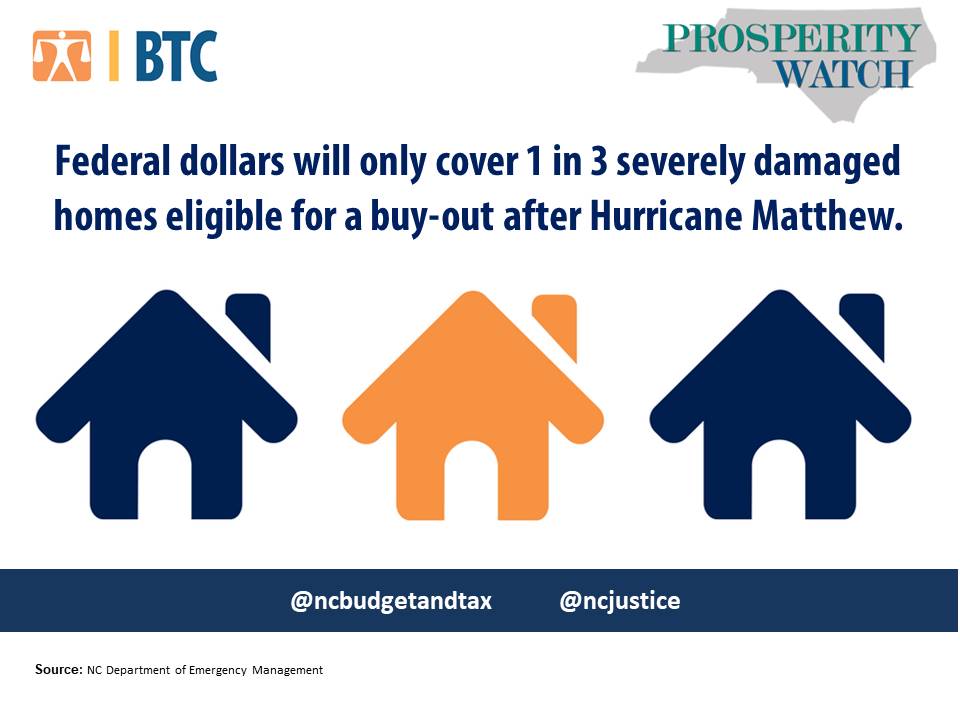Prosperity Watch (Issue 79, No. 2)
October 10, 2017
When Hurricane Matthew hit North Carolina on Oct. 8, 2016, severe flooding impacted more than 800,000 homes and more than 300,000 businesses, displaced 3,744 residents, and closed 635 roads and 34 school systems—causing an estimated $2.8 billion in damage and another $2 billion in lost economic activity.
Hurricane Matthew was not North Carolina’s first time dealing with major post-hurricane flooding. In 1999, Hurricane Floyd caused what is now considered to be lower levels of flooding and damage than from Hurricane Matthew throughout Eastern N.C. Gov. Hunt and the General Assembly reacted by allocating $830 million state dollars to ensure a swift and speedy recovery. In 1999, $286 million, more than one-third of the entire effort, was pulled from the state’s Rainy Day Fund.
The response to Hurricane Matthew has been far more modest from both the federal government and state legislators. The General Assembly has allocated just $300 million in state funds to rebuild the region, while the federal government provided a fraction of the dollars that were intended to go toward the unmet need of $929.4 million. There has been much concern over the potential retreat of the federal government from its responsibilities in supporting recovery efforts following natural disasters.
The result is that one year later there is still significant unmet need to rebuild from the first order impacts of the storm—loss of housing, damage to business, destruction of natural resources and infrastructure. As an example, the NC Department of Emergency Management estimates that federal dollars available for homeowners who experienced severe damage will only cover one-third of the houses that would be eligible for a buy-out.
Providing $450 to $500 million to address these pressing issues in rebuilding communities is just the first step. To rebuild the region, with a focus on strengthening the ability of communities to withstand future natural and man-made disasters, will require a greater commitment of resources for a wider range of efforts that seek to establish a thriving Eastern N.C.
 Justice Circle
Justice Circle 
